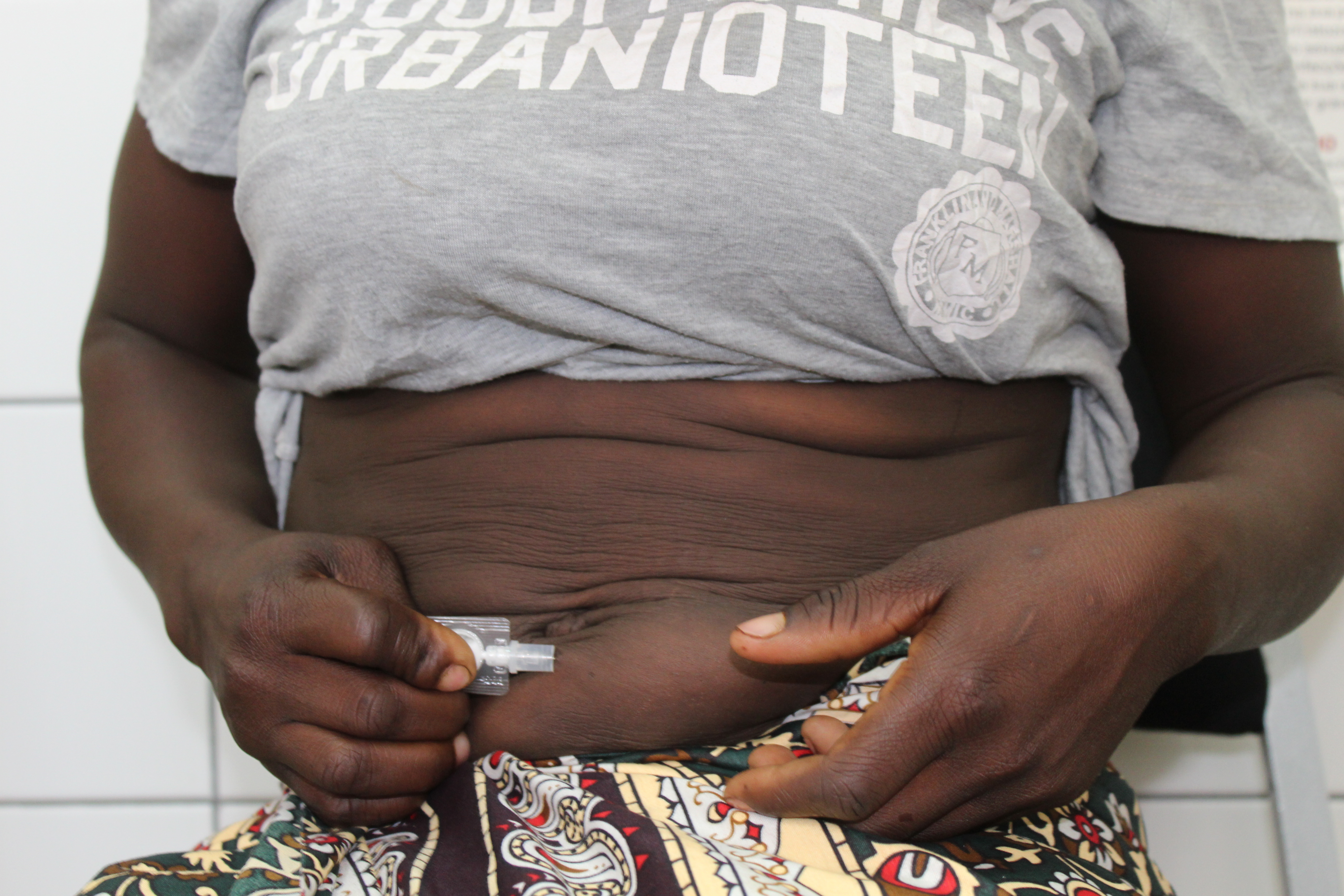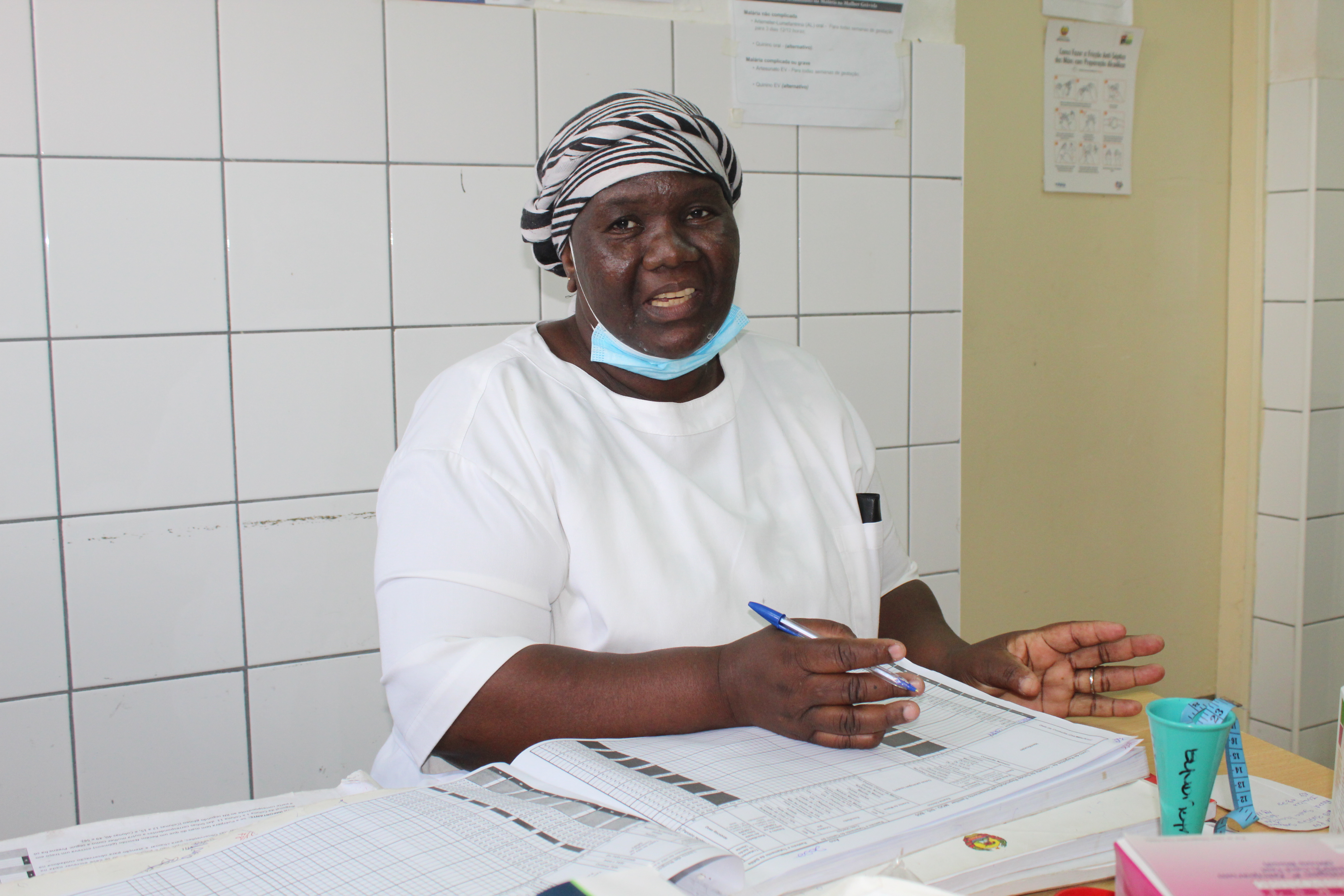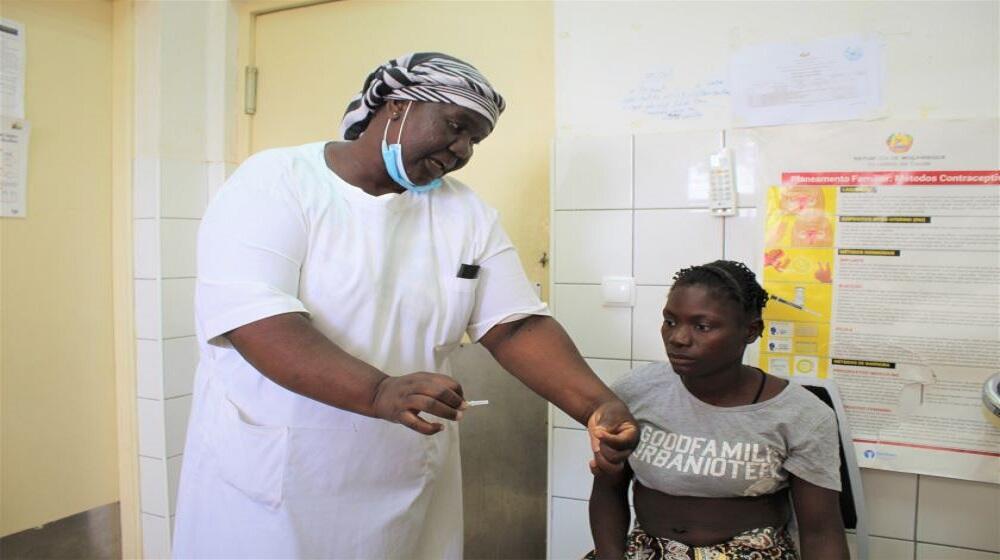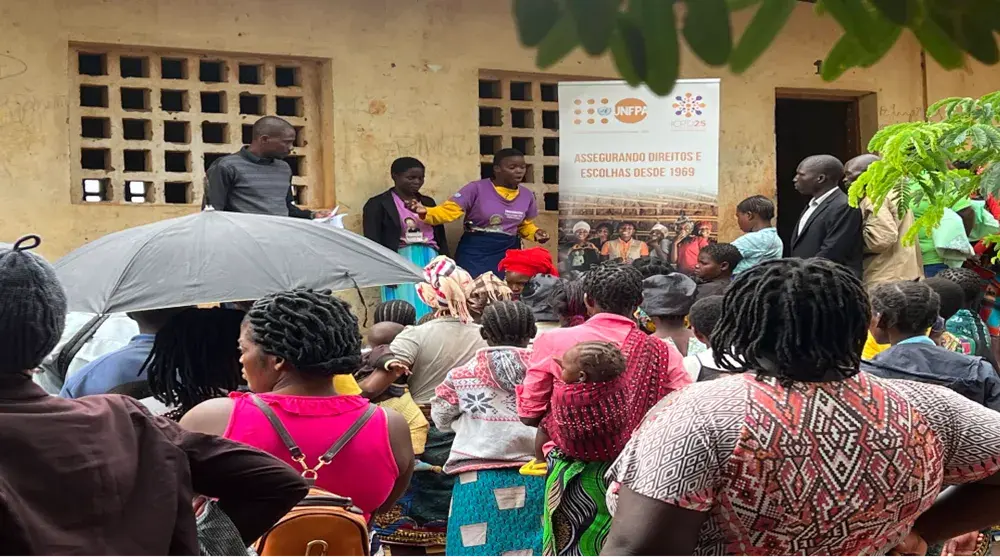NAMPULA, Mozambique - Sara, aged 20, travels at least 10 kilometers to reach the Mutauanha Health Center, on the outskirts of Nampula City in Mozambique, to receive contraceptives.
This is the closest health unit to her residence, and often, due to a lack of money for transportation, she is forced to walk the distance.
Married and a mother of two, Sara eventually chose a self-injectable form of family planning, because, as she explained, it is an approach that brings her several benefits:
"I started using a self-injectable contraceptive two months ago, meaning I don't have to travel to the health facility every month," she notes, adding that: "now I have more time to take care of my household chores, plus I don't have to think about where to get transportation money to go to the hospital."
Sara first learned about this method of contraceptive following an orientation session given by a maternal and child health nurse, where she learned not only about its advantages but how to administer it independently: "It wasn't hard, [and] the nurse explained how I should proceed and in case of any abnormal situation, that I should return to the hospital.”

a health professional. ©Helder Xavier/UNFPA Mozambique
Having had her first child at the age of 18 and the second by 20, Sara now knows that the benefits of family planning allow her to have more control over her body and sexual activity: "I'm going to follow this method strictly because I don't want to get pregnant so soon, especially since I'm considering going back to school," she adds.
Increasing access to - and use of - self-injectable contraceptives is being supported by UNFPA, the United Nations Population Fund, through projects funded by the Governments of the United Kingdom (UK), the Kingdom of the Netherlands, and Sweden, which aim to scale up the availability and accessibility of modern family planning methods in Mozambique.
These multi-year projects, implemented in provinces such as Nampula, Sofala, and Maputo, support women like Sara to expand their choice of family planning options and increase one’s bodily autonomy and decision-making power over if and when, and with whom, they decide to have a child.
The projects, led by the Government of Mozambique, not only teach women how to self-administer injectable contraceptives but also ensure the availability of such contraceptives at health facilities to avoid issues of stock-out.
These efforts are critical in a country where more than half of births occur amongst women aged 15 - 24 (Census 2017).
Equally worrying is the national unmet need for family planning (meaning the number of women of reproductive age who want to avoid or space a pregnancy, but who are not using any method of family planning), which stands at 23% (Survey of Indicators on Immunization, Malaria and HIV/AID - AIS 2015). These projects intend to address the unmet need for modern contraceptive methods for women in the most remote areas.

women and girls in the community she serves. ©Helder Xavier/UNFPA Mozambique
"My first impression was that of ‘surprise’ because I thought that the number of family planning users would go down, but I realized that it didn't," said Lídia Tocoloa, a Maternal and Child Health (MCH) nurse at the Mutauanha Health Center. Lídia added that more and more women are currently opting for self-injection, which has also reduced crowding at the health center.
"We offer orientation sessions on a recurrent basis, where we talk about the benefits, how the method works, and then we ask them to practice in our presence," said Lídia.
For women like Sara and MCH nurse Lídia, self-administered contraceptives are game-changers for family planning: reducing the economic burden of having to take recurrent trips to the health facility, lessening the demand on over-stretched health services, and most importantly, putting choice in the hands of women and girls of reproductive age, so that their rights and autonomy are fully their own.





